Related Research Articles

John Edward Boulting and Roy Alfred Clarence Boulting, known collectively as the Boulting brothers, were English filmmakers and identical twins who became known for their series of satirical comedies in the 1950s and 1960s. They produced many of their films through their own production company, Charter Film Productions, which they founded in 1937.

Ronald William Howard is an American director, producer, screenwriter, and actor. He first came to prominence as a child actor, guest-starring in several television series, including an episode of The Twilight Zone. He gained national attention for playing young Opie Taylor, the son of Sheriff Andy Taylor in the sitcom The Andy Griffith Show from 1960 through 1968. During this time, he also appeared in the musical film The Music Man (1962), a critical and commercial success. He was credited as Ronny Howard in his film and television appearances from 1959 to 1973. Howard was cast in one of the lead roles in the coming-of-age film American Graffiti (1973), and became a household name for playing Richie Cunningham in the sitcom Happy Days, a role he would play from 1974 to 1980.
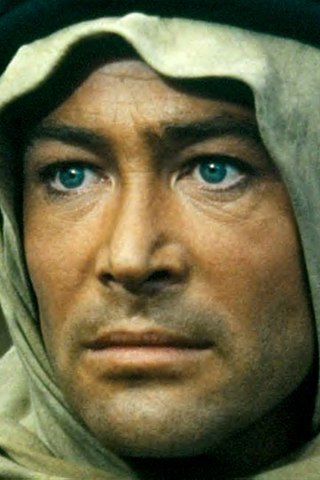
Peter Seamus O'Toole was a British stage and film actor. He attended the Royal Academy of Dramatic Art and began working in the theatre, gaining recognition as a Shakespearean actor at the Bristol Old Vic and with the English Stage Company. In 1959 he made his West End debut in The Long and the Short and the Tall, and played the title role in Hamlet in the National Theatre's first production in 1963. Excelling on the London stage, O'Toole was known for his "hellraiser" lifestyle off it.
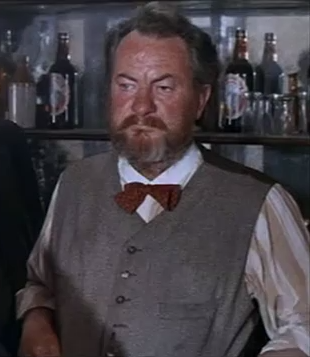
Reginald "Leo" McKern, AO was an Australian actor who appeared in numerous British, Australian and American television programmes and films, and in more than 200 stage roles. His notable roles include Clang in Help! (1965), Thomas Cromwell in A Man for All Seasons (1966), Tom Ryan in Ryan's Daughter (1970), Paddy Button in The Blue Lagoon (1980), Dr. Grogan in The French Lieutenant's Woman (1981), Father Imperius in Ladyhawke (1985), and the role that made him a household name as an actor, Horace Rumpole, whom he played in the British television series Rumpole of the Bailey. He also portrayed Carl Bugenhagen in the first and second instalments of The Omen series and Number Two in the TV series The Prisoner.

Man Bites Dog is a 1992 Belgian black comedy crime mockumentary film written, produced and directed by Rémy Belvaux, André Bonzel and Benoît Poelvoorde, who are also the film's co-editor, cinematographer and lead actor respectively.
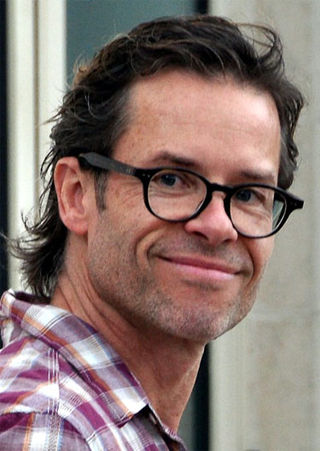
Guy Edward Pearce is an Australian actor. Born in Ely, Cambridgeshire, and raised in Geelong, Pearce started his career portraying Mike Young in the Australian television series Neighbours. He received international attention for his breakout role in The Adventures of Priscilla, Queen of the Desert (1994) and subsequently took starring roles in Curtis Hanson's L.A. Confidential (1997), Christopher Nolan's Memento (2000) and Simon Wells's The Time Machine (2002). Pearce is known for his performances in the film adaptation of Cormac McCarthy's The Road (2009), Kathryn Bigelow's war drama The Hurt Locker (2009) and Tom Hooper's historical drama The King's Speech (2010). He has appeared in Ridley Scott's Prometheus (2012), the Marvel action film Iron Man 3 (2013), Alien: Covenant (2017), and the historical biopic Mary Queen of Scots (2018).

John Barry Humphries was an Australian comedian, actor, author and satirist. He was best known for writing and playing his stage and television characters Dame Edna Everage and Sir Les Patterson. For his delivery of Dadaist and absurdist humour to millions, his biographer Anne Pender described Humphries in 2010 as not only "the most significant theatrical figure of our time … [but] the most significant comedian to emerge since Charlie Chaplin".
Roman Kroitor was a Canadian filmmaker who was known as a pioneer of Cinéma vérité, as the co-founder of IMAX, and as the creator of the Sandde hand-drawn stereoscopic 3D animation system. He was also the original inspiration for The Force. His prodigious output garnered numerous awards, including two BAFTA Awards, three Cannes Film Festival awards, and two Oscar nominations.
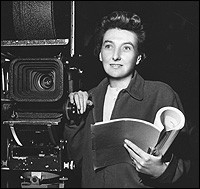
Violette Muriel Box, Baroness Gardiner, was an English screenwriter and director, Britain's most prolific female director, having directed 12 feature films and one featurette. Her screenplay for The Seventh Veil won an Academy Award for Best Original Screenplay.

MTV Entertainment Studios is the film and television production arm of MTV Entertainment Group, a subsidiary of the Paramount Media Networks division of Paramount Global. Founded in 1991 as MTV Productions, it is a consolidation of the former MTV Films group established in 1996 and the MTV Production Development/MTV Studios group of 2003–2021, it has produced original television shows like Beavis and Butt-Head, Æon Flux, Jackass, My Super Sweet 16, Daria, Celebrity Deathmatch, Clone High and The Real World and films such as Election, Joe's Apartment and Napoleon Dynamite. Its films are released by fellow Paramount Global division Paramount Pictures. The MTV Films unit was part of Paramount Players until 2020.

British Lion Films is a film production and distribution company active under several forms since 1919. Originally known as British Lion Film Corporation Ltd, it entered receivership on 1 June 1954. From 29 January 1955 to 1976, the company was known as British Lion Films Ltd, and was a pure distribution company.
Colin Archibald Low was a Canadian animation and documentary filmmaker with the National Film Board of Canada (NFB). He was known as a pioneer, one of Canada's most important filmmakers, and was regularly referred to as "the gentleman genius". His numerous honors include five BAFTA awards, eight Cannes Film Festival awards, and six Academy Award nominations.
Hugh O'Connor was a Canadian director and producer who worked for the National Film Board of Canada (NFB). His best- known film is the ground-breaking In the Labyrinth (1967), but his promising career ended shortly after that film's release when he was murdered while filming in Kentucky.

Thomas Cullen Daly was a Canadian film producer, film editor and film director, who was the head of Studio B at the National Film Board of Canada (NFB).
Fergus McDonell (1910-1974) was an English film editor and director. He was nominated for the Academy Award for Best Film Editing for Odd Man Out (1947), and his film The Hideout received a nomination for Best British Film at the 1949 BAFTA Awards.
John Spotton C.S.C. was a Canadian filmmaker with the National Film Board of Canada.
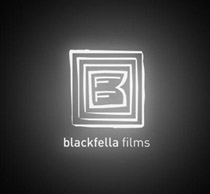
Blackfella Films is a Sydney-based documentary and narrative production company, founded in 1992 by Rachel Perkins. The company produces distinctive Australian short and feature-length content for film and television with a particular focus on Aboriginal Australian stories. Its productions have included the documentary series First Australians, the documentary The Tall Man, the television film Mabo, and the TV series Redfern Now.

Jennifer "Jennie" Boddington was an Australian film director and producer, who was first curator of photography at the National Gallery of Victoria in Melbourne (1972–1994), and researcher.
Julian Biggs (1920–1972) was a director and producer with the National Film Board of Canada and its first Director of English Production. Over the course of his 20-year career, he created 146 films, two of which were nominated for Academy Awards. His film 23 Skidoo (1964) received two BAFTA nominations, including the BAFTA United Nations award.
David Bairstow (1921-1985) was a Canadian producer and director and one of the most prolific filmmakers at the National Film Board of Canada.
References
- ↑ "Three in a Million". The Bulletin. 30 September 1959. Retrieved 16 May 2023.
- ↑ "Film award to Three in a Million", The Beverley Times, 23 June 1960, retrieved 16 May 2023
- ↑ Blackwood, Jennie; Boddington, Adrian; BP Australia; Zanthus Films (1981), Three in a million, Zanthus Films, retrieved 16 May 2023
- ↑ "Winners & Nominees".